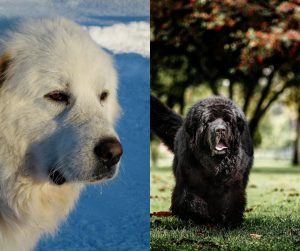Bichon Frise puppies are small, yet, active dogs that are famous for their sweet temperament. They are amazing family pets and easy to take care of. The Bichon Frise dog breed is famous for its curly hair. Today, we want to talk about how long Bichon Frise lives.
The small dog breed is an amazing family pet. And every family wants to have a dog that lives for a long time.
History Of The Breed
Before we get into life expectancy, let’s talk a bit about the history of the breed. They are a group of small white dogs known as Barbichon types. It is a group that also includes the Maltese, Havanese, and Bolognese. According to many historians, their history dates back to Tenerife, the biggest island of the Canary Islands.
Sailors adored one particular breed so much, they named it Bichon Tenerife. That is the ancestor of the modern Bichon Frise breed.
It became popular with the royal courts of Italy, Spain, and France. The dog was even more popular during the 13th century and the Renaissance.
With the start of the French Revolution, the beloved lapdog of the wealthy became widespread. During the French Revolution, the wealthy owners were taken away. Dogs had to start fending for themselves.
Luckily, street performers took them in and trained them to be circus performers. Here is a fun fact. This breed was amazing at performing and captivating audiences back in the day.
In the 20th century, world wars were a big challenge for survival. But people saved them from the streets of France and Belgium and allowed them to survive. The first Bichon Frise Club of America was established in San Diego in 1964. The American Kennel Club accepted the breed in the Miscellaneous class in 1971.
Average Life Expectancy of Bichon Frise
Bichon Frise puppies have always been bred to be small. And we know that a small dog breed usually lives longer than a large dog breed. Bichons could easily live between 12 and 15 years.
They have a normal and healthy life span. They tend to be active and loving puppies that enjoy spending time with their family.
Now, in the last several years, we have to mention that the lifespan and life expectancy of Bichons have changed. That is because breeds were introduced into the Bichon. They became larger compared to the original Bichons bred in Tenerife.
That has resulted in a shorter lifespan. On average, Bichons nowadays live between 12 and 14 years. One of the biggest factors is genetics. Like any other canine, some lines may be predisposed to health issues that can shorten their lives. Make sure to get your Bichon Frise puppy from a reputable breeder.
Another factor is overall pet health and care. Make sure to provide proper nutrition, exercise, and regular veterinary check-ups.
Why Do People Fall In Love With Bichon Frise?
As we said before, the Bichon is a small, fluffy dog that has captured the hearts of many pet parents. Their curly white coat and round black eyes give them an adorable look. Plus, we have to mention that the Bichon is a hypoallergenic dog that doesn’t shed.
Their small size, weighing between 12 and 16 pounds make them a versatile dog you can take anywhere. Overall, their elegant appearance is definitely something that dog lovers around the world want.
And at the same time, the puppy retains its playful nature.
Health Risks of Bichon Frise
As we said before, some dogs are predisposed to certain health issues and health concerns. With regular veterinary checkups, you can get early detection of some issues. You should also ask the breeder for a history of the puppy. Look at any genetic predispositions in the parents.
That being said, Bichons are generally healthy puppies. But they do suffer from some issues.
For example, ear infections are common due to their floppy ears. Their ears can trap moisture and bacteria. So, regular cleaning with special solutions can prevent these infections from occurring.
Yet, the most common health condition in Bichons is complications from gum infections and tooth loss. Regular dental care should be a priority. Make sure to clean your dog’s teeth, and provide plenty of dental care treats. That being said, here are some other health issues you need to address.
- Diabetes mellitus, a disease of the pancreas, can cause high blood sugar
- Corneal dystrophy is an inherited disease that can occur when your dog turns two years old. It is characterized by an opaque area developing on the clear surface of the eye
- Cataracts, another health condition that targets the eyes, is a hereditary condition for Bichons
- Last, but not least, we have to mention bladder stones that manifest as blood in urine, or straining to urinate
How Can You Increase Your Bichon’s Life Span?
We talked about how long Bichon Frise live. But we also said that there are things you can do to improve your dog’s lifespan.
To make sure your dog is in the best of health, it is important to provide a proper diet, regular exercise, mental stimulation, and veterinary check-ups.
Speaking of diet, it is important you do not overfeed your puppy. Obese Bichons are at risk of many health concerns. Ensure you are feeding your dog with high-quality food.
Closely follow the manufacturer’s feeding recommendation, and do not give your Bichon anything more than that. Also, some people might be tempted to give Bichons human foods. Bichons are lapdogs. They have trouble digesting foods that are not processed as dog food.
Another factor is regular exercise. Bichons need between 30 and 45 minutes of physical exercise per day. You can include them in family activities and playtime. They love to do sports, even though they are small dogs.
As for veterinary check-ups, that is a must. Early detection can help with any disease and medical condition, no matter how severe.









